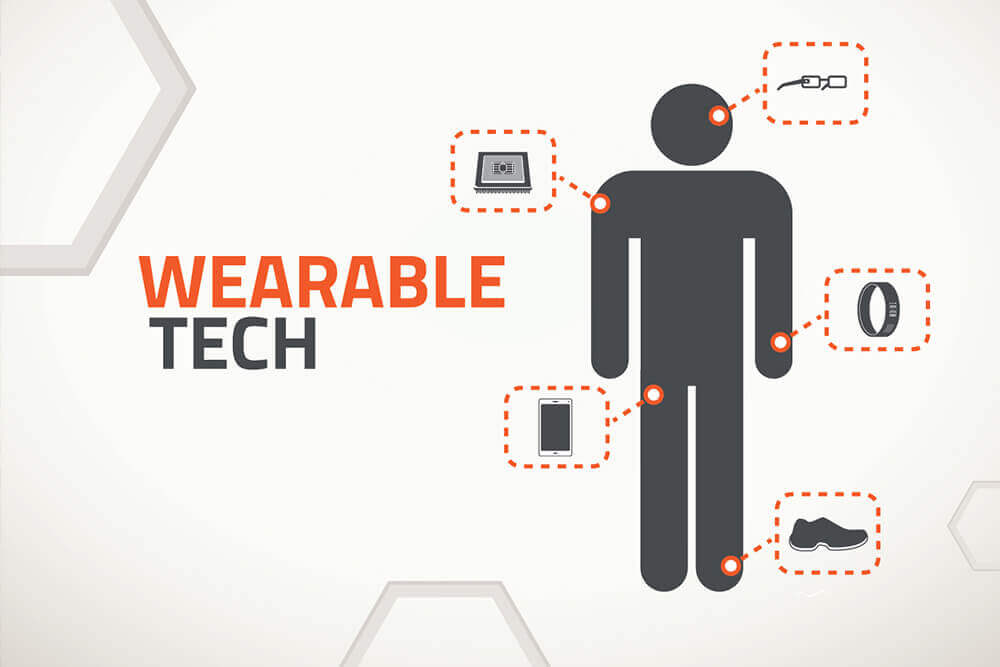Still not convinced wearable technology will transform healthcare? These statistics will change that.
In the past few years, media outlets worldwide have generated a steady flow of headlines about the benefits of wearable technology in healthcare, its untapped potential, and its ability to transform how we deliver medical treatment to the world’s population.
What are medical wearables?
A slew of well-known examples of medical wearables like the Apple Watch and Fitbit garnered the lion’s share of the buzz surrounding wearable technology. What other roles does wearable technology play in healthcare? Medical wearables like bio-sensors, ECG watches, and blood pressure cusps incentive healthy behavior, aid in early diagnosis, and improve remote patient monitoring.
However, what excites people in the healthcare community isn’t as much these particular products, but what they represent. What’s more promising is the general public’s widespread adoption of these devices, more than half of Americans own at least one medical wearable, which confirms that patients would be open to using these products to assist in their care. The ability expands the functionality of these devices in order to implement them into additional healthcare sectors in need.
What areas of health care might benefit from wearable technology?
The one area where the impact of wearable technology in healthcare will be felt most is through the increased ability to provide remote patient monitoring. Through these sensors, we’ll be able to collect more data on patients and their conditions without needing to be in the same room as them, allowing for a quicker and more accurate diagnosis and treatment process.
In addition to enhancing our ability to monitor patients, wearables also have the potential to assist in medical procedures, as we saw with the inclusion of Google Glass in the operation room.
Furthermore, and often overlooked, is the impact wearables have on a patient from a mental standpoint. Patients want to be involved in their care – they want to know what’s going on, and wearables give them that ability by providing readily available data at their fingertips. They allow patients to be more educated on their condition, which empowers them to embrace the importance of their health and cooperate with their doctors in a healthy manner. The only question that remains is:
How will wearable technology impact healthcare?
The numbers tell a story – see for yourself:
- Today 56% of American’s own some type of wearable technology.
- 88% of physicians want patients to monitor their health parameters at home.
- 35% of employers use medical wearable technology to facilitate wellness programs and lower health insurance costs.
- Wearable technology could drop hospital costs by as much as 16% over 5 years, and remote patient monitoring technologies could save our healthcare system $200 billion over the next 25 years.
- More than half of wearable users believe that wearable tech has improved their mental health.
Society has continually shown the willingness to adopt new technology into our lives. Take a look around you – in every direction you look, you’ll see something that was either enhanced or introduced thanks to advances in technology in the past decade alone. These days, technology plays an integral role in everything we see or use. From hybrid cars to cell phones, we are constantly turning dreams into realities by knocking down boundaries and seeking anything that can make our lives easier.
Every year in the medical industry alone, we see revolutionary innovations that would have been deemed impossible a few years before they were created. MRIs and CT scans changed the way we examined detailed parts of the body. Stem cell research changed the way we cure disease and repair damaged tissues. Wearable technology will change the way we monitor, collect data, and care for patients. And as we increase the quality of care we deliver, we ultimately increase the quality of life we seek.
eMedCert provides online ACLS, PALS, and BLS certification courses for nurses and health professionals. Visit our website at https://emedcert.com/ or contact us for questions or more information.
